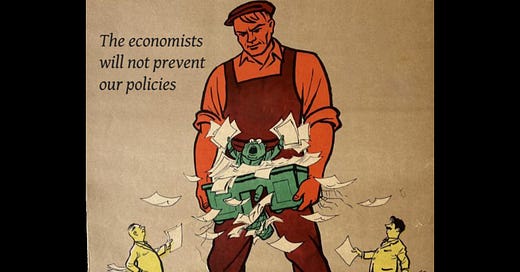Yesterday, a procession of wonks — Marshall Steinbaum, James Medlock, Matt Bruenig, and Dean Baker — got into it over “predistribution.” Blogger Matt Yglesias chimed in as well. I’m not really interested in wading into the weeds of their debate — you can read it for yourself here — but I do want to clarify what this rhetoric is actually about.
In case yo…
Keep reading with a 7-day free trial
Subscribe to Carl Beijer to keep reading this post and get 7 days of free access to the full post archives.





